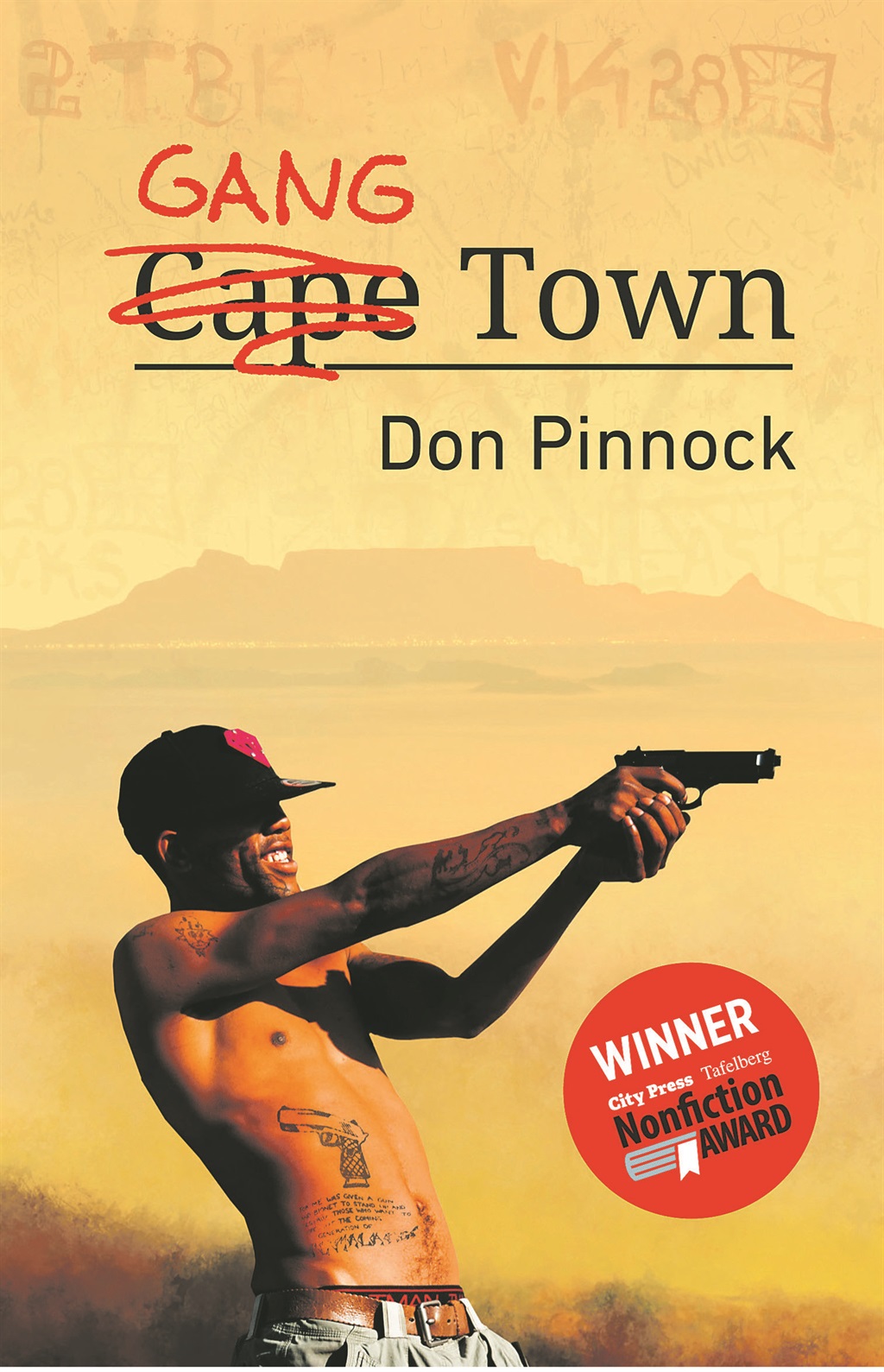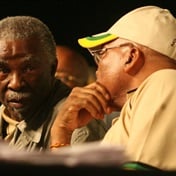
Gang Town by Don Pinnock
Tafelberg
280 pages
R225
Cape Town has a youth drug problem that’s out of control. It’s possible to fix it, but it will need a government with both insight and guts.
Drugs largely drive Cape Town’s stratospheric levels of interpersonal violent crime. Users rob and steal to get them, gangs murder to retain their sales turf and drug lords hold neighbourhoods in thrall by violence. There is a solution to this, but it would take a brave and resolute government to implement it.
First, though, here’s a necessary backstory about the so-called War on Drugs involving Harry Anslinger, the former head of the US Federal Bureau of Narcotics who started the war in the 1930s.
Anslinger became obsessed first with the Mafia and then with opium. He claimed China was smuggling it into America to undermine the country and soften up teenage girls for sex with Chinese dealers. He considered all African-Americans a criminal threat.
In the 1950s, after befriending Senator Joseph McCarthy, known for his ‘Reds’ witch-hunt that led to crippling smear campaigns against thousands of Americans, Anslinger widened his attention to communism. His primary tool was the Harrison Act of 1914 and he dramatically expanded the size and reach of his bureau using little science and considerable scare tactics. By the 1950s, the bureau had sufficient clout to threaten with trade sanctions all countries not altering their legislation in line with the US War on Drugs. South Africa’s drug legislation is a product of this history.
Anslinger was well aware that alcohol prohibition had failed in America and he must have known why. The banning of anything the public desires simply hands supply to the criminal underworld.
This ensures that the state loses control of the situation and, without quality controls, often leads to a bad, even dangerous, product. Before his campaign, drugs could be bought over the counter and only a small percentage of the population used them, mainly recreationally. Addiction was low.
The result of the War on Drugs was that, almost overnight, the crackdown on the legal purchase of cocaine, heroin and cannabis conjured into existence criminal cartels and drug smugglers. Prices went up and a new business model was created that required intensive drug pushing and profited from (and promoted) addiction. Every addict became a potential customer and a cash cow. Anslinger claimed he was fighting the Mafia, but in fact he was transferring what became a hugely profitable drug industry into their exclusive control. By 2010 the illicit global drug market was valued at over $300 billion a year.
In his book, Chasing the Scream: The First and Last Days of the War on Drugs, Johann Hari suggests that the Mafia needed the War on Drugs so badly they bribed officials to intensify it. By criminalising drug use and sending thousands of users to jail, Anslinger’s campaign made it inevitable that they would emerge with criminal records. They would be unable to find legitimate jobs and would invariably beg, borrow, steal and deal to secure a fix and survive.
The massive revenue that dealing illicit drugs earned drug lords allowed for the buying off of police and politicians. It also increased levels of aggression because drug lords – who don’t want a shoot-out every day – tended to establish a reputation for being excessively violent so people didn’t pick a fight with them. They instituted a reign of terror and ‘owned’ neighbourhoods. Sound familiar?
In Cape Town you find a gang protecting street corner drug sales. Beyond them is a syndicate importing drugs, a network supplying them, drug mules carrying them, another syndicate controlling their production in a foreign country, a gang protecting the supply to that syndicate and a farmer illegally growing opium or coca.
Each step encourages corruption and violence and at each transaction money changes hands – ultimately huge amounts. Drug smuggling is one of the most profitable trades in the world, largely because of Harry Anslinger and his War on Drugs.
Is there an alternative to that war?
An experiment began in Portugal in 2001 when the persecution of drug users and addicts came to an end. A new law (Law 30/2000) stipulated that recreational drug users should not be marginalised, labelled or imprisoned and addicts were encouraged to seek treatment. The law did not make it legal to sell or traffic drugs; it simply no longer considered possession to be criminal.
Drug use did not skyrocket as predicted. Instead, addiction stabilised, the prison population dropped and the police are now able to attend to serious crime.
The Portuguese accepted that drugs and drug use were not going to ‘go away’. They recognised that people at risk of entering the drug world should be given internal tools –¬ confidence, knowledge and support – to make the right decisions for themselves. Street crime and violence have declined. The country now has one of the lowest levels of drug use out of 28 European countries and is the only country in Europe to have exhibited declines in problematic drug use.
In the United States, 90 per cent of the money spent on the drug policy goes to policing and punishment, with 10 per cent going to treatment and prevention. In Portugal, the ratio is the exact opposite.
The Netherlands decriminalised the use of cannabis in 1976. The possession of a maximum amount of five grams for personal use is not prosecuted and cultivation is treated in a similar way (cultivation of five plants or less is usually not prosecuted). Uruguay legalised the growing and sale of cannabis in 2013 and eight other South American countries are considering loosening their drug policies.
These moves to decriminalise drug use are way stations on the road to a solution. The bigger step is to legalise drugs and treat their use as a health problem not a crime problem. Given the hysteria and propaganda around the War on Drugs, despite its obvious failure, it’s difficult to think this through rationally without raising the spectre of addicted children and tik babies.
But a first step is to admit that our escalating problems of drug use, and the extreme damage this is doing to our young people, is not being solved through prohibition. South Africa has usable legislation already in place regarding tobacco and alcohol, so it’s time to think more clearly.
When you legalise drugs, the first thing that happens (as long as the state doesn’t set the tax too high) is that you drive down the profitability of drug cartels, weaken the networks and drain money out of neighbourhood syndicates. You stop the turf wars, make drug use less cool and more mundane and free up policing for more serious crime.
Government will be able to budget for better family support where the problem starts in the first place. Many addicts who currently get worse behind bars will get better in hospitals and then in jobs.
Billions of rands would be saved on the detection, arrest, court appearances and imprisonment of drug dealers, and billions would be gained on taxing drug use, as is done on alcohol and tobacco. This revenue could be channelled into curative and supportive agencies and information campaigns on the dangers of drug use. Leisure drugs of any sort taken in excess are not good for human consumption, but if the desire to be high is unstoppable, then it needs to be intelligently managed.
Is it likely that South Africa will legalise drugs? Not in the present international climate, given the probable threat of US trade sanctions. But legalisation will happen eventually.
When the American government’s war on alcohol ended, the gangster war for alcohol stopped. All violence produced by prohibition disappeared and it’s today impossible to imagine gun-toting gangsters selling whiskey on a street corner.
We’ll look back one day and wonder at the social destruction that the War on Drugs caused and be amazed at how governments seemed unable to comprehend how prohibition fuelled one of the world’s largest and most vicious criminal networks.
Think you have a great nonfiction book that deserves to be published? Download the entry form from tafelberg.com/Citypress and you could be selected to receive the R120 000 prize and guaranteed publication.
The closing date for entries is June 30




 Publications
Publications
 Partners
Partners








